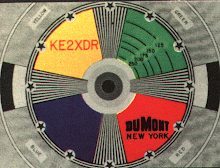Jay Leno is a liberal humorist. Jay walks down the street and gives everyday folks the opportunity to demonstrate how stupid they are, while Jay laughs at them. David Letterman is a conservative humorist. Dave treats everyday folks with respect, giving them the opportunity to laugh at how silly Dave is, as he has fruit dropped from a rooftop, or when he visits his stoic neighbor, Rupert Jee, at "Hello Deli," with another goofy contest. Both Leno and Letterman are funny. Liberals and conservatives can both be funny, but it is easier to be funny by laughing at others, rather than laughing with others. Most humorists take the easy road.What's interesting here is that I agree with his observations but not his conclusion. I see Jay Leno as conceited and easy-going; I see David Letterman as troubled and self-deprecating. Leno is the ring master, marshaling entertainment for the crowd; Letterman is still, psychologically, a weatherman on local TV:
 To be totally honest, I don't think I could say how either man votes. The article was written in 2005, but both Leno and Letterman are every bit as inscrutable now as they were then. For people who talk so much, it's amazing how hard it is to tell what they think. The only thing I can say for sure is that both men want very much to be Johnny Carson, and now, late in their careers, they have to admit they aren't. Which makes one wonder who Johnny Carson wanted to be. Everybody wants to be somebody, to wear the cape or the crown.
To be totally honest, I don't think I could say how either man votes. The article was written in 2005, but both Leno and Letterman are every bit as inscrutable now as they were then. For people who talk so much, it's amazing how hard it is to tell what they think. The only thing I can say for sure is that both men want very much to be Johnny Carson, and now, late in their careers, they have to admit they aren't. Which makes one wonder who Johnny Carson wanted to be. Everybody wants to be somebody, to wear the cape or the crown.In politics, it can be said that virtually everybody would like to be able to think like Abraham Lincoln, quite possibly our greatest president. But who did he look up to? George Washington? Then who did Washington look up to? It's turtles all the way down. I think we look to the past because the symbols are more powerful than the facts - not just because of fuzzy history, but because the circumstances now aren't what they were then.
Much of what both the "diagram" cartoons in Cagel's post say are correct, but the key is inflection and context. The liberal doesn't think "people should pay more taxes" so that the money can be dumped into a hole somewhere; he has a reason. Maybe he wants to know where the Republicans are going to get the money to repave the roads from.
Likewise, the Republican doesn't think that it's okay to expand government when you're a Republican just because you're a Republican; he just trusts Republicans to expand government when necessary, and for the right reasons - reasons he believes in.
The truth is that no ideology is going to be a cure-all, and both sides know it but they don't tell each other because they fear doing so would portray them as weak. As a result, the two sides are essentially wearing masks around each other - which reinforces their mistrust.
That leads us here. As Sean Munson attempts to show in a chart the lone commenter described as "pretty," bloggers tend to talk with people who think like them. In the age of the Internet, it's possible to narrow your focus market to a degree not possible before, for two reasons. One, it's cheaper to run a blog than anything else - Blogger, for instance, is free - and two, it's easier to search. At the very height of broadcast analog television, there were only 83 channels to go around, with each one confined to a market as large as the broadcast tower could reach.
This, in turn, led first to hegemony (due to cost, it was easier for local stations to ally themselves with either ABC, NBC or CBS than produce all of their own material) and then to neutrality, as each station tried to wring the maximum number of viewers from the people living inside the broadcast range of the transmitter. It was quite simply more cost-effective to try and appeal to both liberals and conservatives than to pick one side. And that, I think, is why Leno and Letterman are so opaque. They're zeitgeist jockeys, riding popular opinion from one day to the next. It's good business.
That's what troubles me about blogging. I can reach any computer with internet access anywhere in the world, for free, so I can say exactly what I think with no moderators at all.
That's not a power every human being should have. It may well not be a power I should have.



